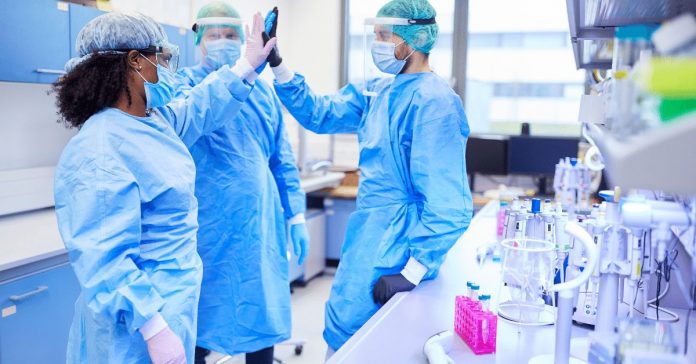2017 was a year of groundbreaking medical innovations. From gene editing to artificial intelligence, advancements in genetics and biotechnology are reshaping medicine. These breakthroughs will have an impact on your health and the way you live your life. As such, it’s critical to understand where they’re headed so that you don’t fall victim to the hype. In this blog series, we’ll be exploring the top biotech breakthroughs of 2017. Keep reading for insight into the future of biotechnology and how it will impact our lives in years to come.
How Biotechnology is Changing the Future of food Safety
Food safety is an essential part of any healthy diet. Today, people are eating more genetically modified (GM) foods than ever before. As a result, we’ve seen an increase in the prevalence of diseases like listeriosis, salmonella poisoning, and E. coli infections. As more people rely on GM food, we’re likely to see an increase in the number of cases. One of the biggest changes in biotech in 2017 was the rise of new lab-made foods. New advancements in the field of biotechnology allowed scientists to create lab-grown meat, seafood and dairy products. These products are created using cells that are then grown in a lab. While these lab-made products are not yet widely available, they are likely to increase in popularity over the coming years. In fact, lab-grown meat products are already on the rise.
How Biotechnology is Revolutionizing Medicine
The human body is incredibly complex. The way it works requires a combination of physical and chemical processes that are best understood by looking at them in high detail. For the most part, this kind of research goes hand in hand with biomedical research, which seeks to better understand the human body and fix diseases through biological engineering. In recent years, biomedical engineering has started to influence the way we eat. This has led to a variety of new products such as smart food screens, meal-replacement drinks, and even smart breathalyzers to help combat health problems like diabetes and obesity. New biomaterials are also revolutionizing medicine. For example, cartilage replacement materials are being used to help people suffering from debilitating injuries. Some scientists are even exploring the use of 3D-printed tissues that could be used to replace your organs.
Gene Editing and Biotechnology in the Future
One of the biggest changes in biotech is the rise of gene editing. This involves altering the DNA of cells in order to create desired changes within the body. For example, people with certain genetic disorders can undergo gene editing to address their health issues. This has led to the development of therapies for conditions like HIV, sickle cell disease, and muscular dystrophy. One of the most exciting areas of gene editing is the use of CRISPR/Cas9 to edit human DNA. This allows scientists to make changes to the human genome with greater precision than ever before. One day, gene editing technologies might even be used to create superhumans. Gene editing could potentially be used to create enhanced athletes or even super soldiers who are more resistant to disease. This could lead to a future in which humans genetically engineered to be stronger, smarter, or even more resistant to disease could be created.
AI and Biotechnology: The Final Frontier
Artificial intelligence (AI) is widely considered to be one of the biggest changes in biotechnology. AI can be used to automate processes, make predictions, and crunch massive amounts of data. This has led to the development of biometric sensors that can monitor your health and fitness, as well as smart systems that can track your food intake and recommend the right diet. While AI is already having a massive impact in healthcare, it’s likely to become even more powerful in future. As scientists continue to develop cutting-edge technologies, AI has the potential to become even more pervasive in our daily lives. The final frontier for biotechnology is the human-AI collaboration. For example, scientists are developing AI tools to help people suffering from mental health issues. Healthcare providers are beginning to use AI to improve the timeliness of assessments and increase the accuracy of diagnoses.
Bottom Line
The future of biotechnology is extremely exciting. New technologies are enabling researchers to make breakthroughs in the field. This could lead to significant changes in medicine, food safety, and even how we live our daily lives. These advances might sound like science fiction, but they’re already a reality. The most important thing to remember is that biotech is evolving rapidly. The best way to stay on top of the latest advances is to keep an eye on the news and understand where they’re headed.
ALSO READ: What Are Unblocked Games WTF?
